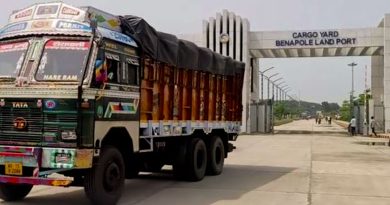Bangladesh is set to form an expert panel to lead trade negotiations as the country prepares to graduate from the least developed country (LDC) category in November 2026. The move aims to secure free trade agreements (FTAs), preferential trade agreements (PTAs), comprehensive economic partnership agreements (CEPAs), and economic partnership agreements (EPAs) to retain market advantages post-graduation.
Commerce Secretary Mahbubur Rahman said the panel, once approved, will engage with major trading partners to finalise deals in line with government regulations. Negotiations with Singapore are expected to begin soon, while talks with South Korea are ongoing. A Bangladeshi team is currently in Tokyo for the final round of discussions to sign an EPA, which could become the country’s first full-fledged economic partnership agreement. Previously, Bangladesh had only signed a PTA with Bhutan in 2020.
Commerce Adviser Sk. Bashir Uddin highlighted that the government aims to build a dynamic pool of trade negotiators capable of navigating complex international trade issues and safeguarding national economic interests.
British High Commissioner Sarah Cooke assured Bangladesh that the UK will maintain duty-free market access after LDC graduation and offered to share trade negotiation expertise.
UNDP Resident Representative Stefan Liller and other senior officials also underscored the importance of preparing skilled negotiators to diversify Bangladesh’s export markets and mitigate potential trade disruptions.
Business leaders have called for a six-year deferral of graduation, citing economic pressures such as currency devaluation, high interest rates, and risks to export sectors. They warned that losing duty-free, quota-free access to the EU could cut exports by up to $7 billion annually, affecting the ready-made garments and footwear sectors that account for nearly 90 percent of exports.
Experts stressed that early negotiations are crucial to secure preferential deals, align domestic policies with global standards, diversify export destinations, and protect jobs and export-driven growth.






